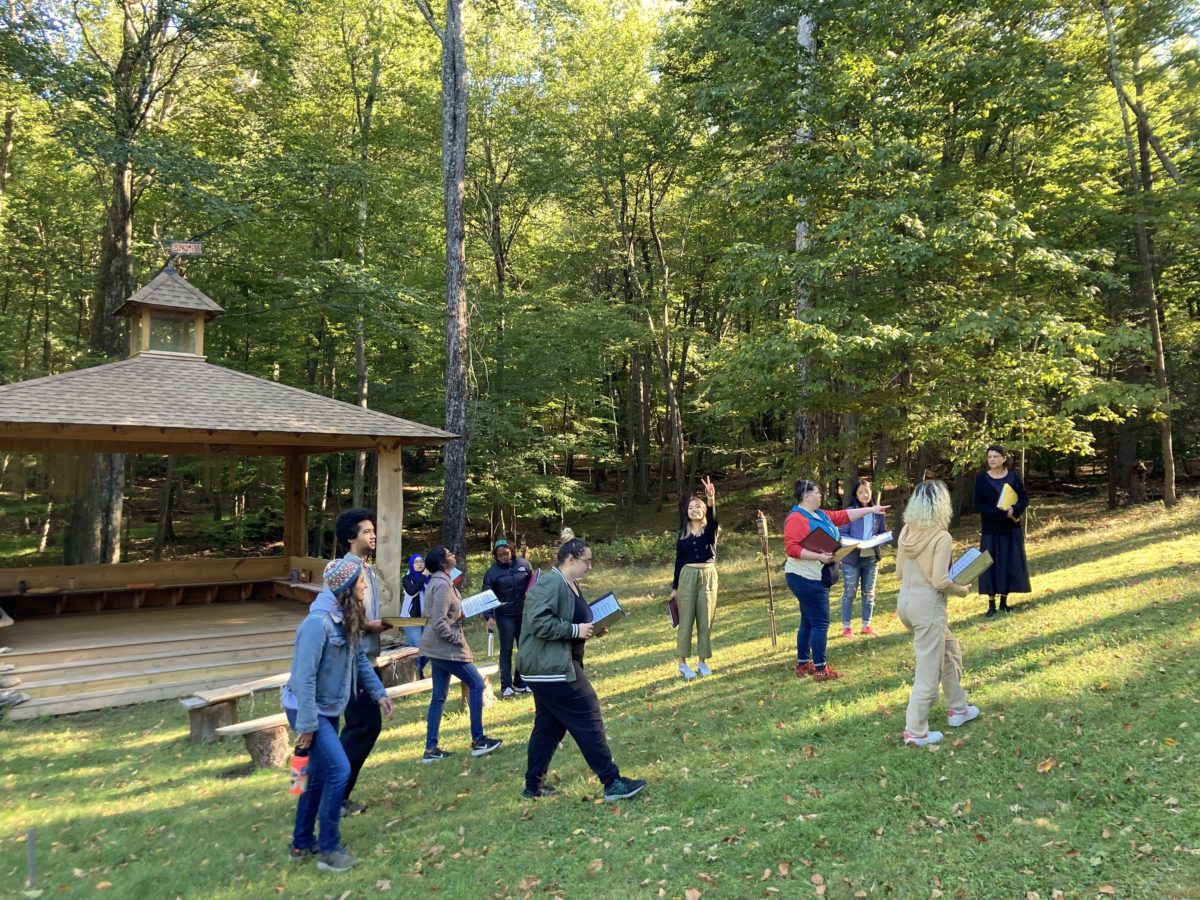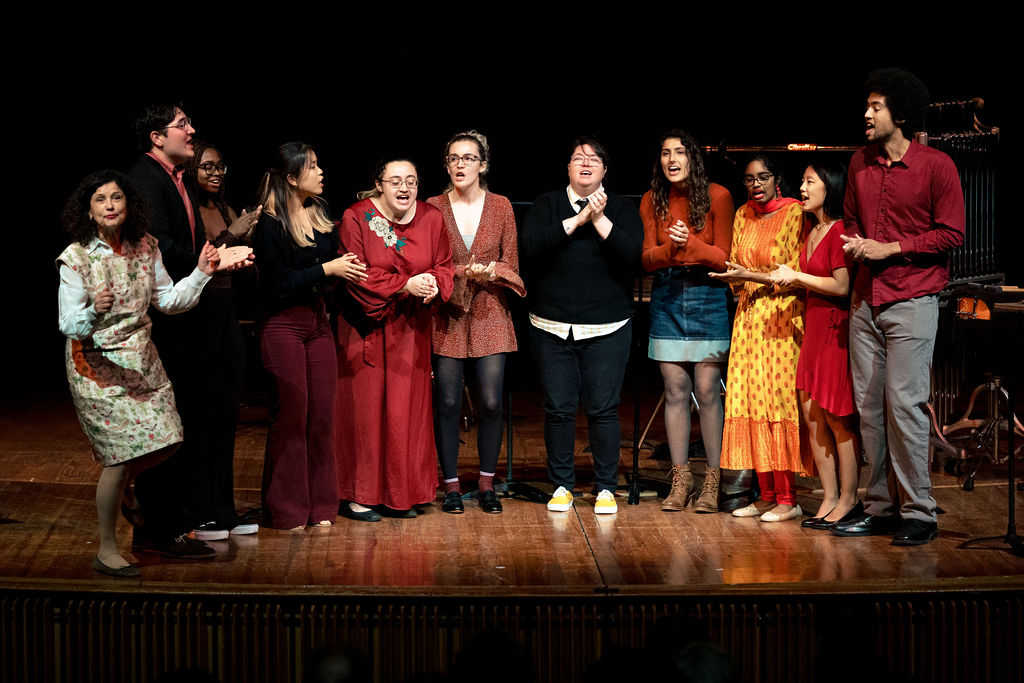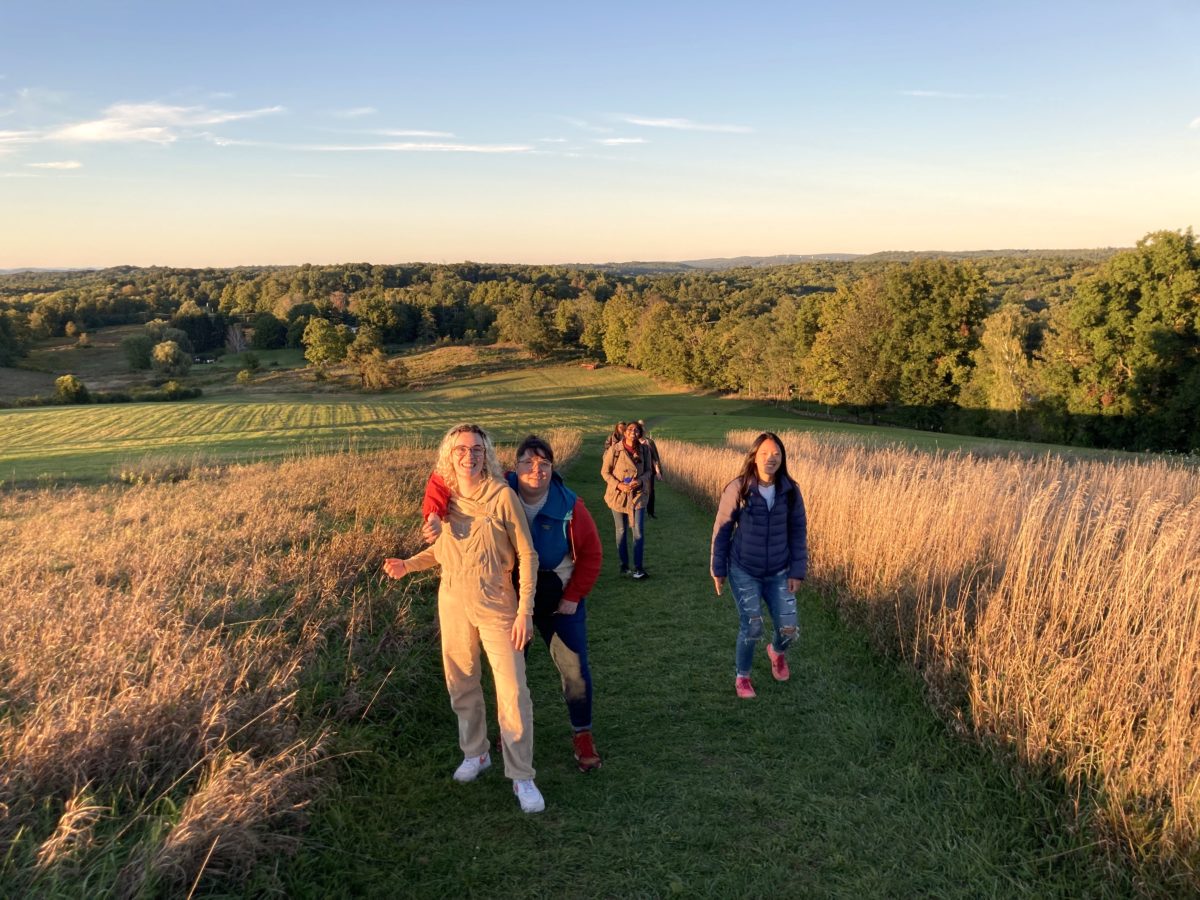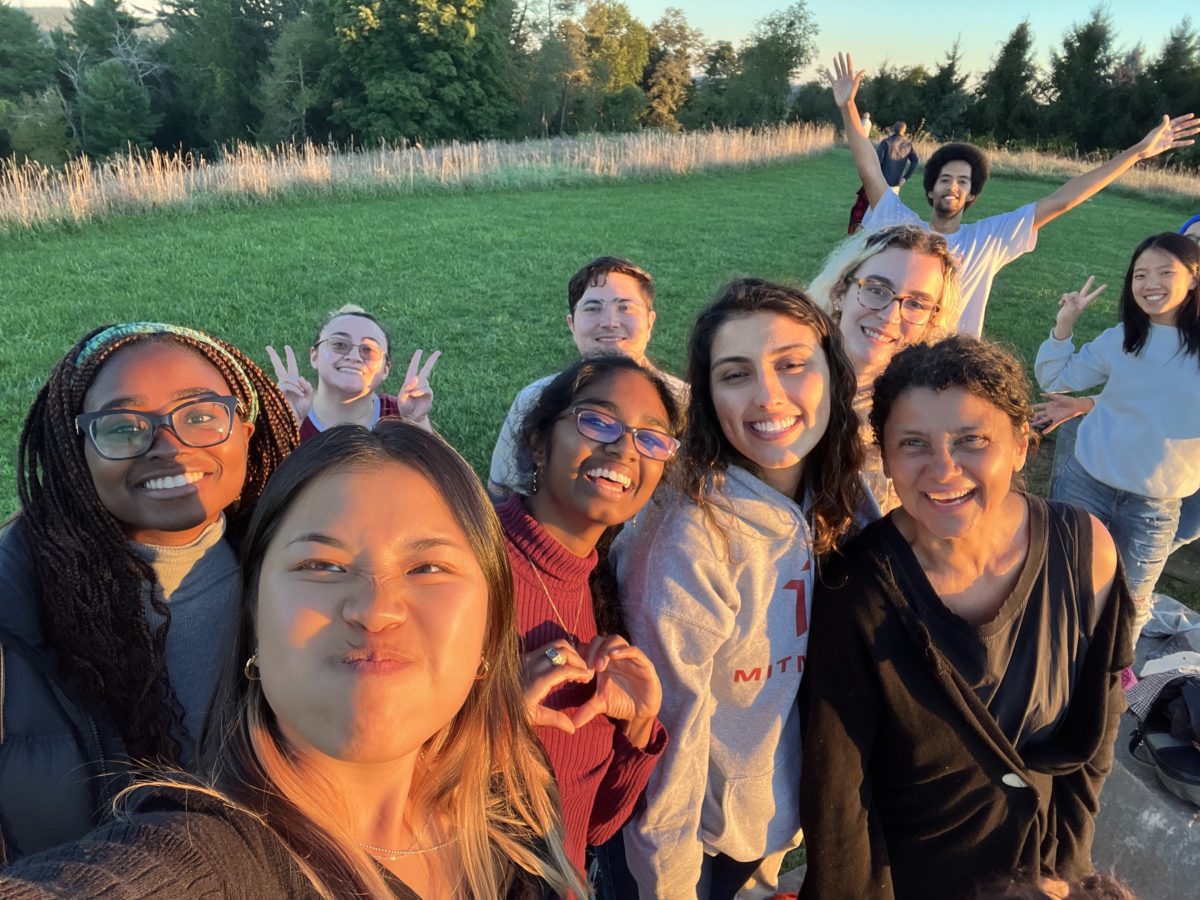With her one-of-a-kind musical style, Distinguished Visiting Artist Iva Bittová helps students make music that is authentically their own
On a weekend in September, a group of students from MIT’s Vocal Jazz Ensemble visited CAST Distinguished Visiting Artist Iva Bittová’s house in rural Rhinebeck, New York. When they arrived, the acclaimed Czech singer and violinist was in the front yard wearing Mary Janes and a downy black sweater, her curly hair fanning out, looking “like a wood nymph,” said Laura Grill Jaye, the director of the ensemble. As Jaye remembers, “We drove up this long driveway and Iva was standing there with her arms wide open.”
For the last several decades, Bittová has been celebrated for her original interpretations of classical music and improvisational live performances, which blends traditional Czech folk music with elements of classical music, rock, and avant-garde. Her use of the violin and her distinctive voice, which can range from operatic to improvisational, has long pushed the boundaries of conventional genres.
During the weekend at her nine-acre property in the woods, disconnected from the pressures of ordinary life, Bittová helped MIT students discover their own voices. Many of them, so often campus-bound, were struck by the number of trees. For Bittová, the point has always been to commune with the elements, and, in the process, uncover something genuine. “I am trying to develop my own melodic way to talk to nature, to the sky, and be connected,” she said. She described her eclectic approach to sound-making as finding “the natural way of doing things.”

While singing vocal jazz can be painstaking—demanding each performer sing the exact same vowel at the exact same moment, said Jaye—the weekend spent with Bittová was liberating for MIT students. When Bittová suggested they sing to her favorite rock, the students agreed. When she suggested they sing to the trees, their improvised melodies converging with the sound of the wind, they agreed. And when she proposed one night after dinner that they sing on a local hilltop, among strangers, as the sun was setting over the Hudson river—well, why not? Why not serenade a tree? Why not belt folk songs from the mountains? Why not just do what you feel? “We were completely transfixed by this place, and the spirit, and Iva herself,” said Jaye.
Bittová has a long history at MIT dating back to 2009, when she performed as part of the The Beeline Festival at the Broad Institute. Four years later marked the debut of EVIYAN, a trio with Gyan Riley and MIT professor Evan Ziporyn. In 2019, Bittová performed the US premiere of her album Zvon with the MIT Symphony Orchestra (MITSO) as part of MIT Sounding, an annual concert series curated by Ziporyn, Kenan Sahin Distinguished Professor of Music and Faculty Director of the Center for Art, Science & Technology.
These visits owe much to Bittová’s decades-long friendship with Ziporyn, who first heard her music on a mixtape given to him in the early nineties. “It was nicely samizdat,” he said. The Internet was not widespread, and the Soviet Union was just beginning to open up. It would be years before they could meet in person, and yet he was moved by her sound—her voice that, as one critic wrote, wrapped around words “playfully, erotically, sometimes aggressively” in ways that were at once “very modern and at the same time very ancient.” She was like no one but herself.

This fall, Bittová was a guest lecturer in Ziporyn’s course, Global Pop, which investigated, among other issues, the intersections of pop music and power. In the class, Bittová discussed her coming of age between the Prague Spring and the Velvet Revolution, the peaceful protest movement, stoked in part by rock and roll, that led to the end of the Communist regime in then-Czechoslovakia. “Iva talked about what life was like growing up under a very controlled artistic environment, when music was always connected to politics, one way or another,” said Ziporyn. “Her openness in the class really just changed the atmosphere completely.”
Sharing her story encouraged students to delve deeper into their own personal histories, exploring how, in their own lives, “music has been used either as a force of oppression or force of liberation,” said Ziporyn. Traditionally, he said, he teaches music from a somewhat abstract and dispassionate viewpoint. “My emphasis is usually on the definition of music,” he said, “But what Iva brought to class was to say, ‘No, this is definition of self.”
A month after the trip to Rhinebeck, the Vocal Jazz Ensemble performed alongside Bittová, as part of her October concert New Resonances. If it was once fairly rare for students to improvise on stage, now every MIT Vocal Jazz Ensemble member took a scat solo. “They were so amazed how suddenly it was so easy,” Bittová said.

Though Kresge Auditorium is not a concert hall built for the intimacy of a single, unplugged human voice, Bittová insisted on performing without amplification. “She wanted everything to be as acoustic, as authentic as possible,” said Jaye. From the back of the room, Bittová wound her way through the crowd in a gold embroidered tunic, “just throwing her voice around,” Jaye remembered, before infusing avant-garde composer Luciano Berio’s 1964 Folk Songs, originally composed for classical soprano, with the earthy, wild sounds of jazz and Central European vernaculars.
In December 2022, Bittová also joined the MIT Wind Ensemble in the annual Prism concert in reinterpreting Percy Grainger’s landmark 1937 Lincolnshire Posy, which, while based on British traditional folk songs, is part of the standard wind-ensemble-qua-military-band repertoire. Bittová, improvising from the concert hall’s balcony, “reconnected the music to its folk DNA and to the sounds of nature that all music ultimately springs from,” said Ziporyn.
It can be difficult, as an artist or a person, to find one’s own voice, unburdened by tradition or the expectations of others. Throughout her time at MIT, Bittová, leading by example, has helped students channel their thoughts, feelings, and histories into musical form, as an expression of freedom. The students’ attraction toward Bittová, said Ziporyn, was not so different from his first encounter so many years ago. “That’s the way I felt when I first heard Iva. I just wanted to find a way to work with this person and experience her way of being with sound in the world. And so it was really surprising but gratifying to find that there was this group of students who felt the same way.”
Written by Anya Ventura
Editorial direction by Leah Talatinian

